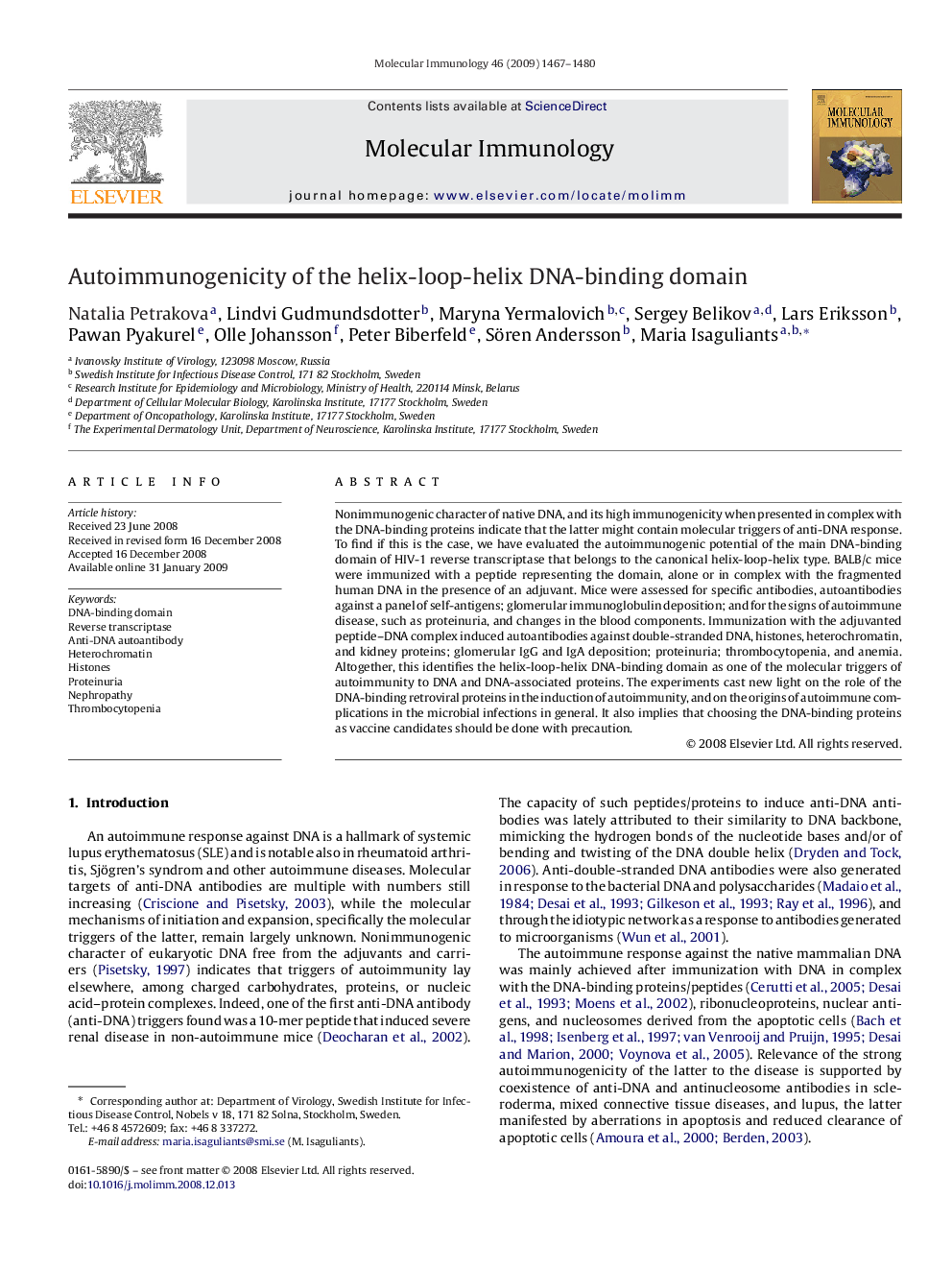| Article ID | Journal | Published Year | Pages | File Type |
|---|---|---|---|---|
| 5917904 | Molecular Immunology | 2009 | 14 Pages |
Abstract
Nonimmunogenic character of native DNA, and its high immunogenicity when presented in complex with the DNA-binding proteins indicate that the latter might contain molecular triggers of anti-DNA response. To find if this is the case, we have evaluated the autoimmunogenic potential of the main DNA-binding domain of HIV-1 reverse transcriptase that belongs to the canonical helix-loop-helix type. BALB/c mice were immunized with a peptide representing the domain, alone or in complex with the fragmented human DNA in the presence of an adjuvant. Mice were assessed for specific antibodies, autoantibodies against a panel of self-antigens; glomerular immunoglobulin deposition; and for the signs of autoimmune disease, such as proteinuria, and changes in the blood components. Immunization with the adjuvanted peptide-DNA complex induced autoantibodies against double-stranded DNA, histones, heterochromatin, and kidney proteins; glomerular IgG and IgA deposition; proteinuria; thrombocytopenia, and anemia. Altogether, this identifies the helix-loop-helix DNA-binding domain as one of the molecular triggers of autoimmunity to DNA and DNA-associated proteins. The experiments cast new light on the role of the DNA-binding retroviral proteins in the induction of autoimmunity, and on the origins of autoimmune complications in the microbial infections in general. It also implies that choosing the DNA-binding proteins as vaccine candidates should be done with precaution.
Keywords
Related Topics
Life Sciences
Biochemistry, Genetics and Molecular Biology
Molecular Biology
Authors
Natalia Petrakova, Lindvi Gudmundsdotter, Maryna Yermalovich, Sergey Belikov, Lars Eriksson, Pawan Pyakurel, Olle Johansson, Peter Biberfeld, Sören Andersson, Maria Isaguliants,
